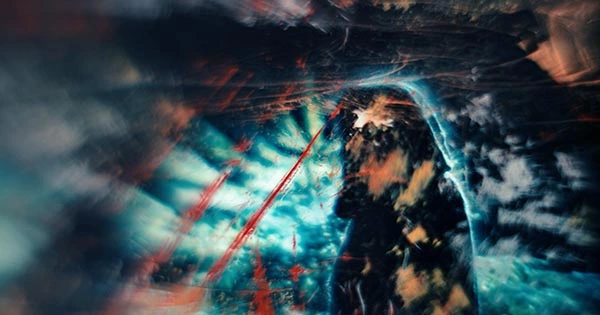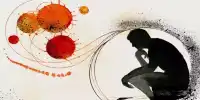One of the biggest drawbacks of being alive is the fear of dying, but recent research suggests that psychedelic substances might give us a glimpse of the grand conclusion and help us get over our fear of dying. The new study, which is published in the journal PLOS ONE, contrasts real near-death experiences (NDEs) with death-like psychedelic trips and finds that both have the ability to significantly alter people’s attitudes on dying.
Numerous earlier research have demonstrated the relationship between psychedelic drugs and decreased dread of death, raising the possibility that medications like psilocybin or ayahuasca may have a place in palliative care. Even the hallucinogenic guru Ram Dass, a former Harvard professor named Richard Alpert, said that “death is totally safe.”
The 3,192 participants in the latest study are likely more likely to believe the counterculture icon than the majority of people who might find such a claim to be absurd. A newfound acceptance of one’s own mortality was expressed by nearly 90% of people, compared to less than 10% who stated their experience made them more afraid of dying.
The authors of the study examined online survey data from 933 people who had had a near-death experience without the use of drugs, 904 people who had taken LSD, 766 people who had taken psilocybin, 282 people who had consumed ayahuasca, and 307 people who had smoked DMT. They discovered that, overall, “the [drug and non-drug] groups were remarkably similar in the reported changes in death attitudes attributed to the experience, including a reduced fear of death and high ratings of positive persisting effects and personal meaning, spiritual significance, and psychological insight.”
Participants in this group actually scored slightly higher than those in the non-drug group on the Greyson Near-Death Experience Scale, which is used to determine whether an encounter qualifies as a genuine NDE, despite the fact that only 3% of psychedelics users believed their lives to be in danger during their trip. 47 percent of those who did not use drugs felt that their lives were in danger at the time of their NDE.
In addition, participants in the psychedelic group were more likely than those in the non-drug group to meet the requirements for having had a full-fledged “mystical experience.”
More specifically, the authors write that “nearly half of both groups endorsed having ‘Encountered anything someone may term ‘God’, although this was much higher in the Psychedelic Group than the Non-Drug Group (56 percent vs 48 percent).”
Although the non-drug group reported greater rates of “convincing emotions of acquiring information in an extrasensory manner” and “feelings of communication with those who have died,” the feeling of “being reborn” was also much more prevalent in the psychedelic group. Non-drug-induced NDEs were also more frequently rated as the most meaningful in a person’s life by those who had them.
The researchers compared the effects of various psychedelics and discovered that people who consumed ayahuasca or DMT were more likely to have a genuine NDE than those who consumed LSD or psilocybin. In comparison to LSD or psilocybin, ayahuasca and DMT often resulted in more beneficial changes to lifestyle and attitude. They also sometimes caused a “sense of reliving biological birth.”
According to Roland Griffiths, the study’s author, “not only can the characteristics of psychedelic experiences be similar to Near Death Experiences, both are rated as among the most meaningful lifetime experiences and both produce similar enduring decreases in fear of death and increases in well-being.”













